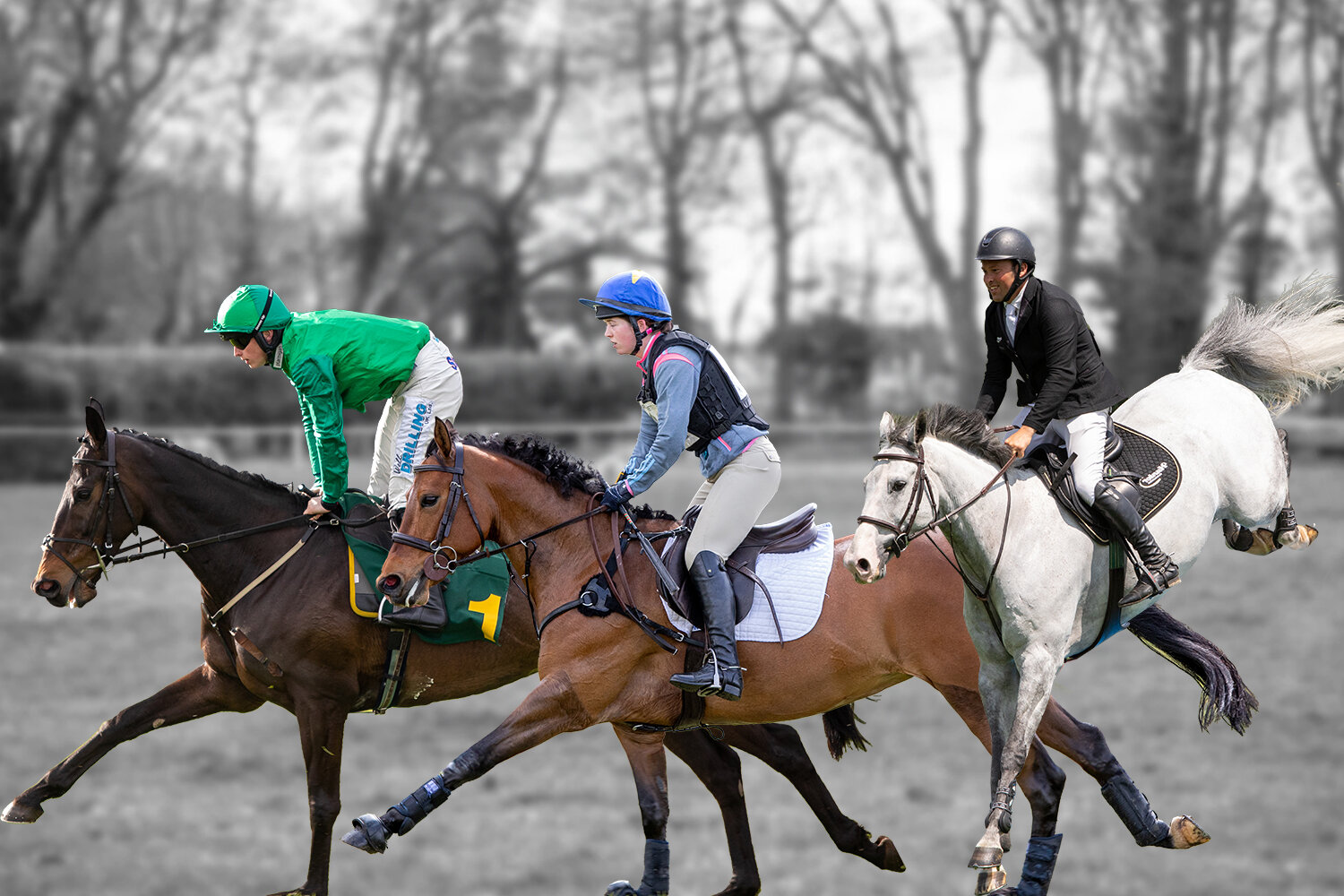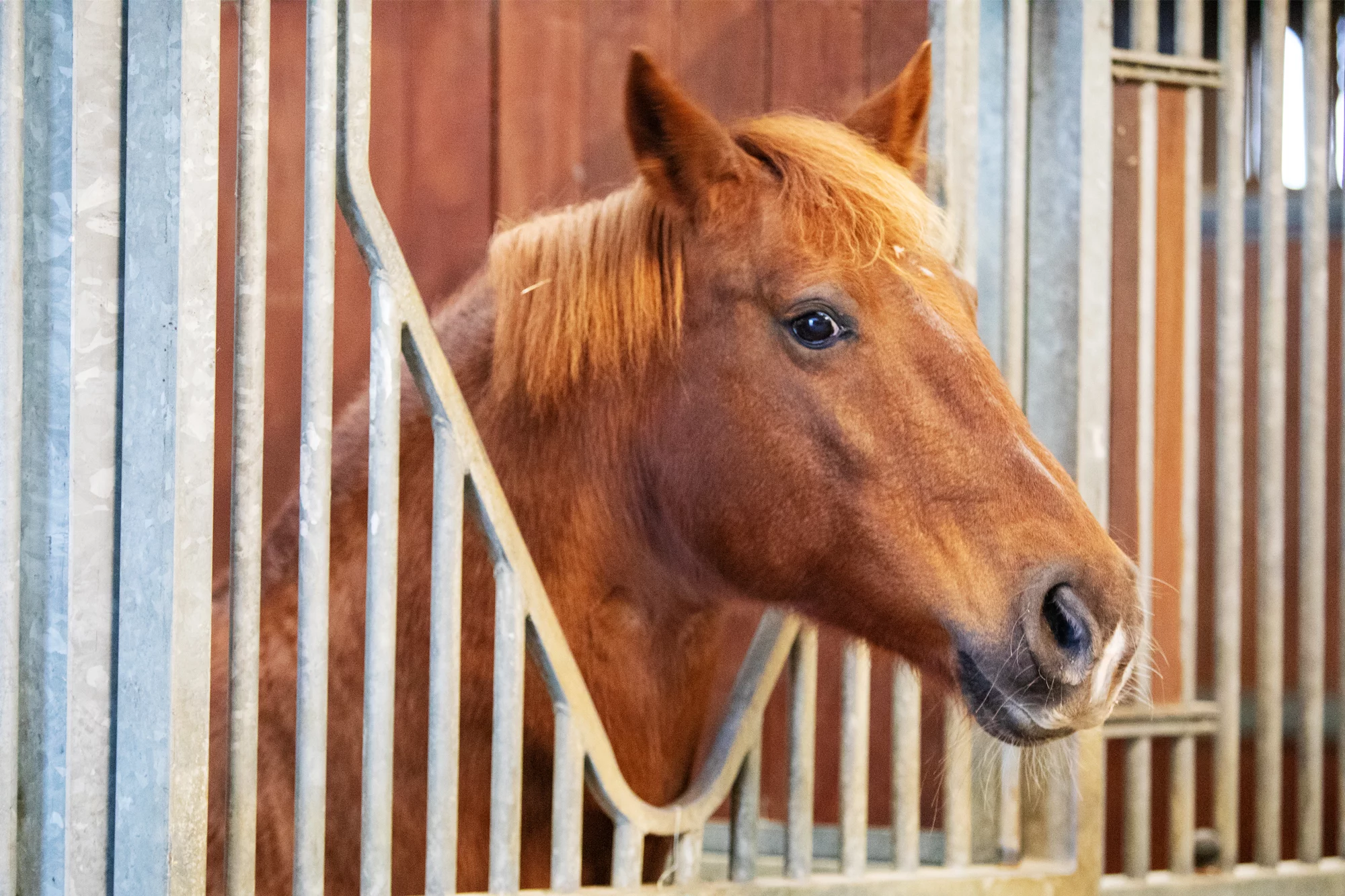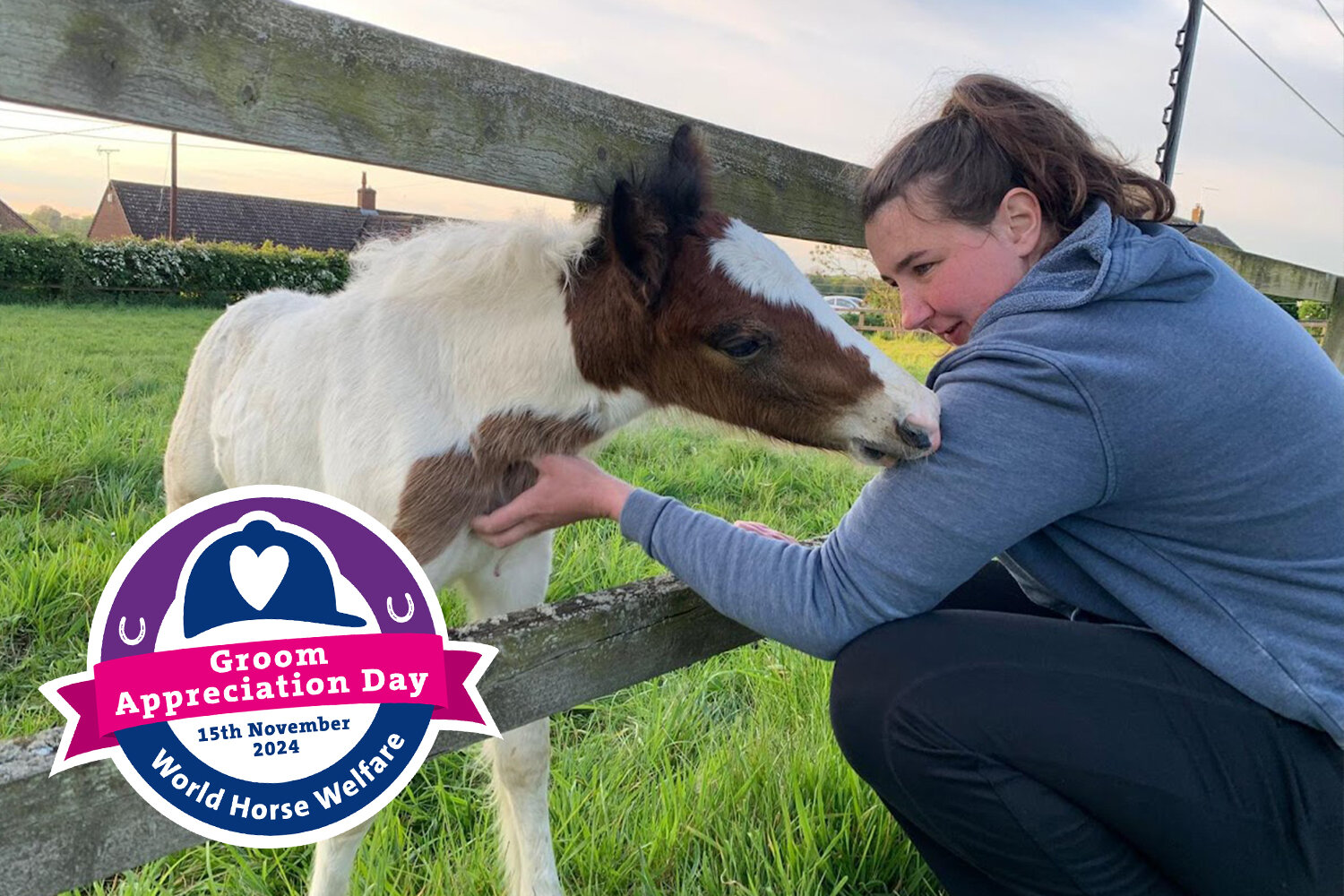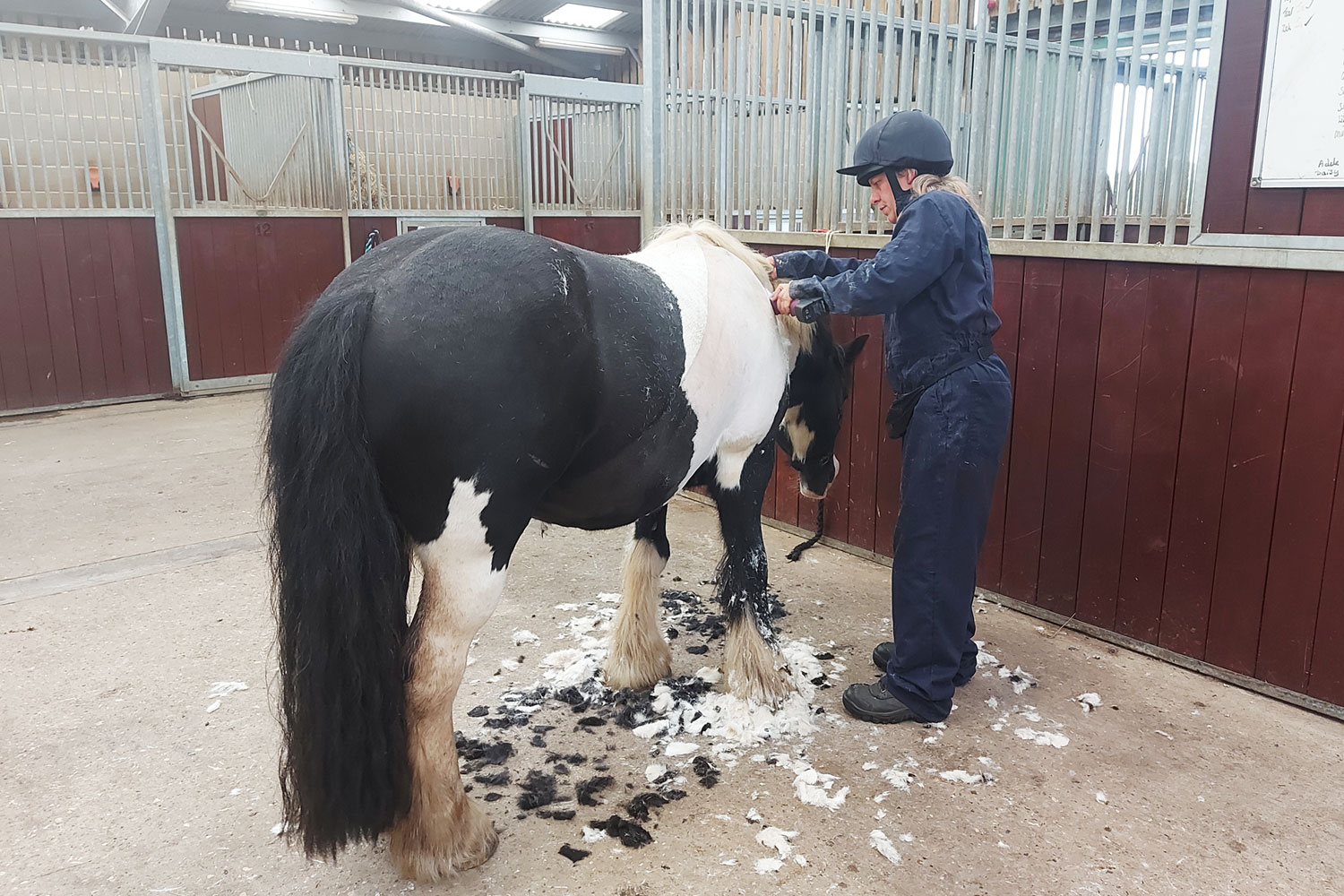Exploring the results of our annual survey into the public acceptance of horse sport
What does the public think about training horses with whips, spurs or rewards? Do they believe that all sport horses live good lives?
Posted on 06/06/2025

On Tuesday 3 June the results of World Horse Welfare’s fourth annual YouGov public opinion poll* on the public acceptance of horses in sport will be revealed at a briefing for horse sport leaders and the media from 11:00am-12:30pm (BST) in London and online.
Our charity has been monitoring UK public opinion on the acceptability of involving horses in sport since 2022. The annual survey forms part of our work to support horse sport in improving their ethical and welfare practices by highlighting areas of public concern so that horse sport leaders can take action and build trust.
This year’s media briefing “Public acceptance of the Involvement of horses in sport: what drives trust that they live good lives?” will focus on public perceptions of the lives horses have within sport and the levels of acceptability of how those involved in horse sport train, treat and transition their horses after their careers.
While the results of this fourth annual poll show little change in the public’s attitudes towards horse sport – with 22% not supporting the use of horses in sport at all, 42% who support it only if welfare improves and 58% wanting increased safety and welfare measures – they underscore the common sense of the UK public regarding what horses need for a good life.
Respondents were asked to indicate if they had regular interactions with horses and the survey results showed some significant differences in opinion from members of the ‘non-horsey’ general public.
Some key findings from the survey included:
- Just over a quarter (27%) of the public believe that ‘most sport horses live good lives’, while almost half of those who regularly interact with horses believe this to be true (49%).
- However, only 5% of people in the UK believe that ‘all sport horses live good lives’ while and a similar percentage (8%) of those who interact regularly with horses believe this to be true.
- Nearly two-thirds (62%) of the public understand that it is important to a sports horse to have contact with other horses, while a similar number (64%) stated the need to be able to rest after competitions. Over half (51%) also highlighted the need to have well-fitted tack and equipment and 55% for horses to be fit enough for what is being asked of them. Furthermore, nearly half (45%) recognised that it was also important for them to live in a field.
- Those who regularly interact with horses were more likely than the general public to believe that it was important to a sport horse to go to competitions (17% vs 8%), win competitions (12% vs 6%) and be ridden (35% vs 21%). This could be due to equestrians believing that their horses enjoy their work and competing, though there is not yet any concrete evidence that they do.
- Around 7 in 10 (68%) of all adults believe that those involved in horse sport prioritise horses’ mental welfare only sometimes (26%), rarely (23%) or never (8%). Less than 20% believe equine mental welfare is prioritised ‘always’ or ‘often’.
- There was low public support for some common practices, such as light use of a whip or spurs (21% and 11%), or using strong (leg) pressure on the horses’ sides or reins (7%). Around 3% believe it is acceptable to use a whip with force when training a horse, or to use fear or pain to train a horse.
- In contrast, those who interact regularly with horses were more likely to consider light use of a whip (51%) or spurs (25%) to be acceptable. They were also more likely to believe it was acceptable to use fear (5% vs 2%) or pain (8% vs 2%) to train a horse, and use the whip with force (5% vs 2%).
- In terms of what would build trust among the general public that sport horses live good lives, around half (53%) indicated unannounced welfare inspections of equestrian training facilities and mandatory welfare education for all those involved with sport horses (51%). Just under half (46%) indicated trust would be built by publishing the results of welfare assessments.
The event will explore these results further and will feature a panel discussion chaired by journalist and editor Lucy Higginson, featuring influential voices across equestrianism, racing, welfare and the media:
- Chair – Lucy Higginson, writer and editor
- Dickie Waygood – Eventing Performance Director at British Equestrian
- David Yelland – founder of Kitchen Table Partners
- Brad Hill – equine vet at Nottingham Vet School
- Jenny Hall – equine vet and Thoroughbred breeder
World Horse Welfare Chief Executive, Roly Owers said:
“The UK public has an instinctive common sense about what horses need to have a good life, including having contact with other horses and the ability to make choices for themselves. But the vast majority do not believe that all sport horses live good lives, so there is plenty the horse world can do to build that trust. We hope today’s event sheds light on where opinions between the public and the horse world differ and what we can do to bridge that gap.”
The survey reflects the views of 4,600 respondents aged 18+ in the UK, including 2% who regularly interact with horses.
Topics
Related News

Webinar: Equine behaviour and wellbeing through management
Wednesday 15th February will see equine behaviourists Justine Harrison and Rosa Verwijs return to discuss how the way we manage our horses can have huge implications on their physical and psychological health.

Horse sport leaders and influential voices are brought together to explore what influences public opinion on horse welfare across all equestrian disciplines
"It’s vitally important that we step outside of ourselves and our horse world and, when we think about welfare, seek and trust independent perspectives."
Recommended Blog Posts

Meet some of our often-unsung heroes on Groom Appreciation Day – Kathryn at Hall Farm
"It can be quite the emotional rollercoaster, ranging from the joy of a horse being rehomed to the perfect long-term home, to the pain of seeing a severely neglected foal lose its battle to live."

Post Olympic reflections on equestrian sport
We all have the power and the responsibility to move towards more ethical and evidence-based equestrianism.

Clipping to help overweight horses and ponies lose weight
Hall Farm Yard Supervisor Adele tells us how clipping can be a really useful weight management tool, especially for horses and ponies who can’t be worked.
Enjoy reading stories like this?
Join over 65,000 other horse lovers and sign up for our email newsletter

Join over 65,000 other horse lovers and sign up for our email newsletter
Sign me up now